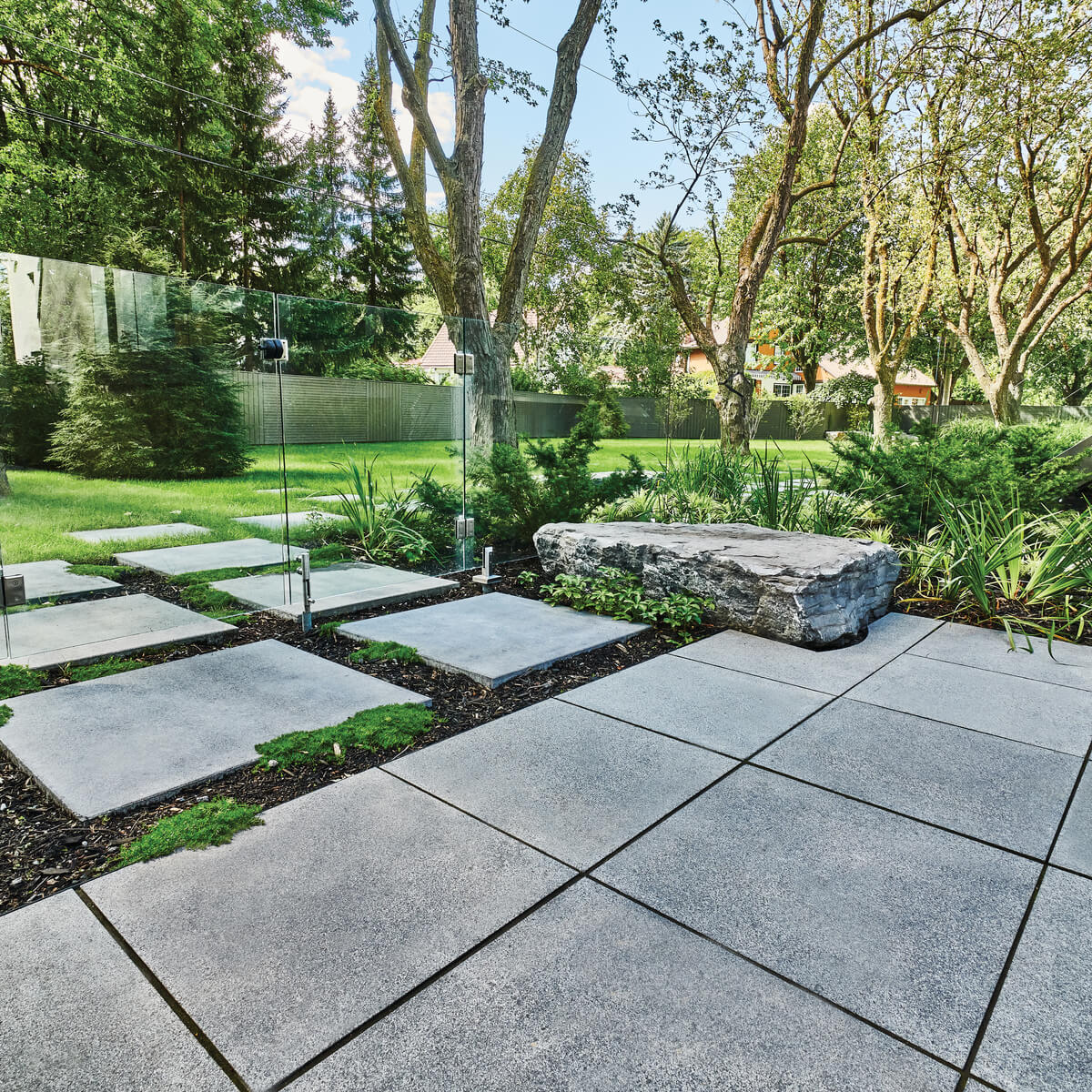Landscape Pavers: Enhancing Outdoor Spaces With Style And Functionality

Landscape Pavers: Enhancing Outdoor Spaces with Style and Functionality
Landscape pavers have become an increasingly popular choice for homeowners and landscape designers alike, offering a versatile and durable solution for a wide range of outdoor applications. These meticulously crafted concrete or natural stone units provide a myriad of benefits, transforming ordinary outdoor areas into extraordinary living spaces.
Types of Landscape Pavers
The landscape paver market boasts a diverse selection of materials, shapes, sizes, and colors to suit any design aesthetic or functional requirement. Here are the most common types:
-
Concrete Pavers: Made from a blend of cement, sand, and aggregates, concrete pavers are renowned for their strength, durability, and affordability. They come in a wide range of shapes, including rectangular, square, and hexagonal, and can be colored or textured to mimic natural stone.
-
Natural Stone Pavers: Derived from quarried stone, such as granite, limestone, or sandstone, natural stone pavers offer a timeless and elegant appeal. They are highly durable and resistant to wear and tear, making them ideal for high-traffic areas.
-
Permeable Pavers: Designed with interconnected voids, permeable pavers allow water to infiltrate the ground, reducing runoff and promoting drainage. They are an environmentally friendly option for driveways, patios, and walkways.
Benefits of Landscape Pavers
Landscape pavers offer a multitude of advantages over traditional materials like asphalt or concrete:
-
Durability: Pavers are highly durable and can withstand heavy loads, making them ideal for driveways, patios, and walkways. They are also resistant to cracking, fading, and staining, ensuring longevity.
-
Versatility: Pavers come in a wide variety of shapes, sizes, and colors, allowing for endless design possibilities. They can be used to create intricate patterns, borders, and accents, adding visual interest to outdoor spaces.
-
Low Maintenance: Unlike asphalt or concrete, pavers are relatively low maintenance. They do not require sealing or resurfacing, and can be easily cleaned with a hose or pressure washer.
-
Enhanced Drainage: Permeable pavers allow water to infiltrate the ground, reducing runoff and improving drainage. This can help prevent flooding and erosion, and is beneficial for the environment.
-
Increased Property Value: Well-designed and installed landscape pavers can significantly enhance the aesthetic appeal and curb appeal of a property, potentially increasing its value.
Applications of Landscape Pavers
Landscape pavers are highly versatile and can be used in a wide range of outdoor applications, including:
-
Driveways: Pavers provide a durable and attractive surface for driveways, accommodating vehicles of all sizes. They can be laid in various patterns to create a custom look.
-
Patios: Pavers create inviting and functional patios for outdoor living and entertaining. They can be combined with other elements, such as fire pits, seating walls, and pergolas, to create a complete outdoor oasis.
-
Walkways: Pavers provide a safe and stylish way to connect different areas of the landscape. They can be designed with gentle slopes for accessibility and can be accented with lighting for nighttime visibility.
-
Pool Decks: Pavers are an excellent choice for pool decks, as they are slip-resistant and can withstand the harsh effects of chlorine and UV rays. They can create a seamless transition from the pool to the surrounding landscape.
-
Retaining Walls: Pavers can be used to construct retaining walls, providing structural support and adding visual interest to slopes and uneven terrain. They can be stacked or mortared together to create walls of varying heights and designs.
Choosing the Right Landscape Pavers
Selecting the right landscape pavers for your project requires careful consideration of several factors:
-
Intended Use: Determine the primary purpose of the pavers, whether it’s for a driveway, patio, walkway, or pool deck. This will help narrow down the appropriate materials and thicknesses.
-
Design Style: Choose pavers that complement the architectural style of your home and the overall landscape design. Consider the shape, size, and color of the pavers to create the desired aesthetic.
-
Durability: Consider the amount of traffic and wear and tear the pavers will be subjected to. Choose pavers with the appropriate thickness and compressive strength to withstand the intended use.
-
Budget: Landscape pavers vary in cost depending on the material, size, and complexity of the design. Determine your budget and explore different options to find the best value for your money.
Installation of Landscape Pavers
Proper installation is crucial to ensure the longevity and functionality of landscape pavers. Here are the key steps:
-
Site Preparation: Excavate the area to the appropriate depth and slope, ensuring proper drainage. Compact the subgrade to create a stable base.
-
Base Layer: Install a layer of compacted gravel or crushed stone as the base layer. This layer provides support and helps distribute weight evenly.
-
Sand Layer: Spread a layer of fine sand over the base layer and level it to create a smooth surface. This layer will provide a cushion for the pavers.
-
Laying the Pavers: Start laying the pavers from the edge or a focal point, working towards the center. Use a rubber mallet to gently tap the pavers into place, ensuring they are level and aligned.
-
Jointing: Fill the joints between the pavers with polymeric sand or fine gravel. Sweep the sand into the joints and compact it using a vibrating plate compactor. This will lock the pavers in place and prevent weeds from growing.
Maintenance of Landscape Pavers
Regular maintenance is essential to keep landscape pavers looking their best and functioning properly:
-
Cleaning: Clean pavers regularly using a hose or pressure washer. Remove any dirt, debris, or stains promptly to prevent discoloration.
-
Sealing: Concrete pavers can be sealed periodically to protect them from stains and fading. Sealers should be applied according to the manufacturer’s instructions.
-
Weed Control: Apply herbicides or pull weeds that grow between the pavers. Regular weeding will prevent weeds from damaging the pavers or compromising drainage.
-
Repairs: If any pavers become damaged or cracked, they can be easily replaced. Simply remove the damaged paver and replace it with a new one, following the installation steps outlined above.
Conclusion
Landscape pavers offer a myriad of benefits and applications, transforming ordinary outdoor spaces into extraordinary living environments. By choosing the right pavers and installing them properly, homeowners can create durable, versatile, and visually appealing outdoor areas that enhance the enjoyment and value of their properties for years to come.
